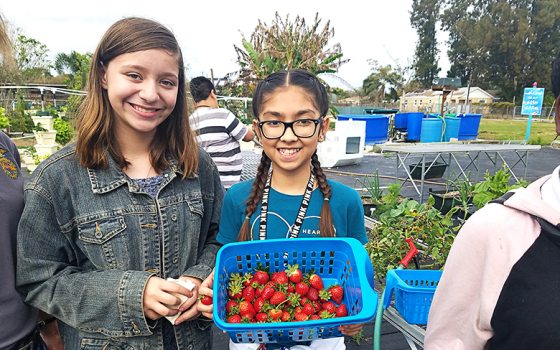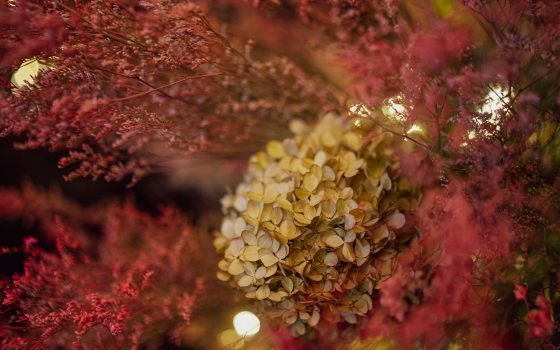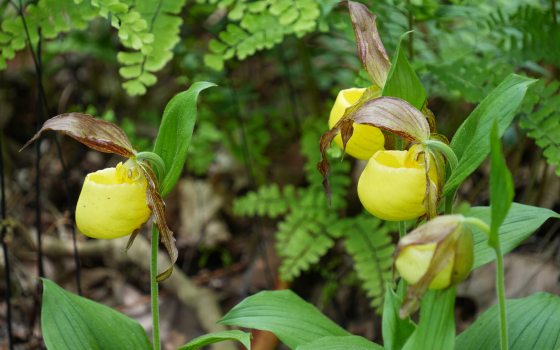This article first appeared in issue 298 of Longwood Chimes, from Fall 2018.
We are reaching a crisis point in horticulture. The horticulturists of today are aging and retiring, and the pipeline of people to follow them is a mere dribble. Employers across all of horticulture—from public gardens and laboratories, to greenhouses and hydroponics facilities—cannot find enough qualified candidates to fill their open positions. College and university horticulture programs are declining.
Reaching far beyond the strength and longevity of the horticulture industry, this crisis is about the future of the planet. We must consider who will take the reins and have the expertise to provide the technology, science, art, and business acumen necessary to meet the rapidly increasing demand for ornamentals, fruits, vegetables, nuts, and herbs in the face of the changing global environment. Who will grow food that is safe and nutritious to feed the growing world? Who will research cures for disease? Who will help solve some of our world’s biggest environmental issues such as pollution, drought, clean water, and climate change? And who will bring wonder to our world by creating landscapes and gardens that are not only beautiful but provide physical, social, and emotional health supports?
In 2014, Longwood Gardens took the lead on tackling this issue, and along with the American Society of Horticultural Science, founded the Seed Your Future movement with Longwood President and Chief Executive Officer Paul B. Redman serving as the Seed Your Future co-chair. With more than 150 partners across the horticulture industry including horticulture companies, gardening organizations, schools, colleges and universities, public gardens, and youth organizations, we are united by our confidence in the power of plants to change the world.
The Seed Your Future movement has taken a proactive approach with a mission to promote horticulture and inspire more people to pursue careers working with plants. We spent our first three years conducting focused research, which today serves as a foundation for the work that officially launched in 2018. The research affirmed what we are experiencing today. We are living in a time of great disconnection from plants. Plants are everywhere—yet plants are nowhere on the minds of most Americans. This “plant-blindness” is especially significant among our nation’s youth. Informed by research examining the right time to reach young people about the wonder of plants and fulfilling plant careers, Seed Your Future decided to focus our first campaign on middle school students. But first, we needed to know what kids had to say.
When asked, middle school students in our focus groups did not know what “horticulture” meant. After we shared with them how plants impact our lives every day, and the diversity of careers across the art, science, technology, and business of plants, the students’ perception of horticulture became much clearer. They wanted us to stop using “weird” words like “horticulture,” show them through video and social media content how plants can change the world, and have “cool” young people tell them about their fun (#ILoveMyPlantJob) careers. They coined the term “plantologist” instead of “horticulturist” and urged us to connect plants to what they are already interested in such as sports, fashion, medicine, technology, and art.
To engage middle school students, we launched Seed Your Future’s BLOOM! initiative in April 2018. Through eye-catching content delivered both inside and outside the classroom, BLOOM! is educating and inspiring young people about the endless possibilities in horticulture. With a staggering presence in 100 percent of classrooms in K-12 schools and more than 90 percent of classrooms in America, Scholastic serves as an important partner in the BLOOM! initiative. With its support, we have also created an exciting microsite of free educator resources including an online learning module, sample lesson plans and activities, infographics, and videos to help adults inspire youth to love plants and consider careers in horticulture. Anyone can download the free resources at scholastic.com/BLOOM (educator resources) and weareBLOOM.org/partners (toolkit of materials).
We’ve already reached almost one million students with our BLOOM! materials in 2018! Year two goals include reaching an additional 1 million students. Now that we’re on a solid path of reaching middle schoolers, we’re developing our second campaign—this one focusing on colleges and universities. In 2019, Longwood will host an enrollment summit with colleges and universities that currently offer horticulture programs. We hope to learn their needs, and then based on the research we’ve already conducted, create tools and resources to help colleges and universities inspire enrollment in horticulture training programs. In years to come, we’ll develop other campaigns to help solve this workforce gap. Perhaps mid-career-changers, returning veterans, ex-offenders, and people with special needs will be among our next priorities. We’ll continue to expand our partnerships and work together to ensure a solid pipeline of trained and passionate horticulturists for years to come.
For more information about the work of Seed Your Future, visit seedyourfuture.org. We invite you to join in the movement to help teach the plant-blind to see and open young minds to the possibilities of a future in horticulture. It’s time for Americans to wake up and smell (and grow) the roses, trees, and tomatoes. Together, we can show them how.


